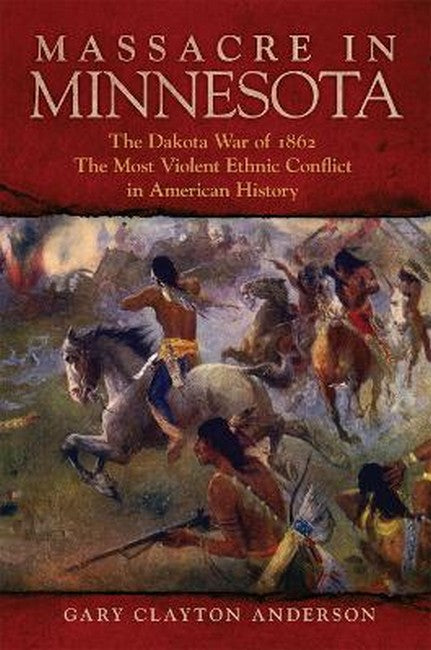Gary Clayton Anderson, George Lynn Cross Research Professor at the University of Oklahoma , is author of The Conquest of Texas: Ethnic Cleansing in the Promised Land, 1820-1875. His book The Indian Southwest, 1580-1830: Ethnogenesis and Reinvention won the Angie Debo Prize and the publication award from the San Antonio Conservation Society.
Request Academic Copy
Please copy the ISBN for submitting review copy form
Description
"Anderson's account of the Dakota uprising of 1862 is now the definitive one of an event-shamefully corrupt in its origins, horrific in its unfolding, and tragic in its aftermath-that must stand among the most appalling and revealing in the long history of Indian-white relations."-Elliott West, author of The Essential West: Collected Essays and The Last Indian War: The Nez Perce Story #8220;Exhaustively researched and copiously documented, Anderson's history of the Minnesota-Dakota War of 1862 offers fresh perspectives and a superior understanding of both Dakota culture and federal Indian policy. This will become the standard work on the subject."-William E. Lass, author of Minnesota: A History and Navigating the Missouri: Steamboating on Nature's Highway "Treating all aspects of the 1862 Dakota War with matching gravity, Gary Clayton Anderson's Massacre in Minnesota can justifiably lay claim to being the finest single-volume treatment of "the most violent ethnic conflict in American history." Highly recommended." - Civil War Books and Authors "Gary Clayton Anderson's well-written book provides a readable, single-volume portrayal of this defining event in Minnesota history that remains controversial today."-South Dakota History "After four and a half decades of scholarship-including the ethno-biography, Little Crow: Spokesman for the Sioux (1986), and a co-edited collection, Through Dakota Eyes (1988)-Gary Clayton Anderson came to the conclusion that he had not provided a clear explanation for the combination of circumstances that caused the Dakota War of 1862...With this career capstone book, Anderson has given us our best understanding of the terrible Dakota War of 1862 and its tragic consequences, to date."-New Mexico Historical Review

